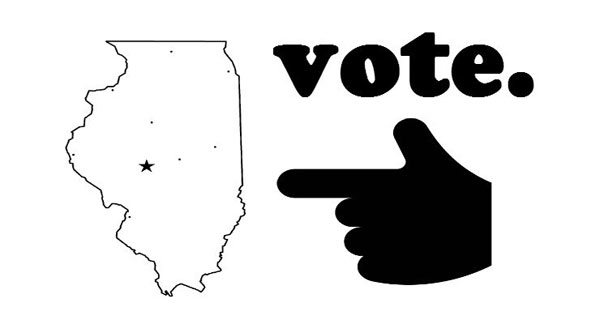
August 28, 2017; Mother Jones
Illinois just became the 10th state to sign into law a bill that will automatically register eligible residents to vote when they interact with a government agency unless they opt out. Democratic State Sen. Andy Manar, a chief sponsor of the bill, thanked Governor Rauner for signing the bill but credits the bill’s success to voting rights activists, who see it “as the future of voter registration” and “an antidote to laws passed in Republican states making it harder to vote.”
Similar laws have been passed or enacted in Alaska, California, Colorado, Connecticut, Washington DC, Georgia, Rhode Island, Vermont, and West Virginia. According to the Brennan Center for Justice, 32 states have passed or introduced automatic voter registration bills in 2017.
“The right to vote is foundational for the rights of Americans in our democracy,” Rauner said at the signing ceremony. Rayner is the first Republican governor to sign such a bill into law. But, as Bloomberg View wrote on the issue, “It shouldn’t be partisan.” Reporter Jonathan Bernstein compared automatic voter registration to universal suffrage.
Voting is one of the fundamental acts of democracies, and therefore voting should be easy for everyone eligible. Indeed, in most nations registration is automatic. The case for making voting hard has always been indistinguishable from the case for limiting the franchise to only certain people, whether those privileged few are marked off by ethnicity, religion, education or even just interest in politics. It doesn’t matter: Making voting difficult is a way to restrict full citizenship to only a select few.
Sign up for our free newsletters
Subscribe to NPQ's newsletters to have our top stories delivered directly to your inbox.
By signing up, you agree to our privacy policy and terms of use, and to receive messages from NPQ and our partners.
Bernstein noted that while some of what makes voting difficult in the U.S. may not be designed to discourage voting—such as the many and varied elections that are held at different times and years, the result of federalism and the separation of powers—others, such as voter registration, were “clearly adopted as methods of reducing voting.”
Oregon was the first state to pass such a law, in 2015. And, as Ari Berman noted, writing for Mother Jones, “the results were impressive.”
- Of the 800,000 unregistered voters in Oregon, about 225,000 were registered that way
- Oregon had the highest increase in voter turnout in the U.S. from 2012 to 2016
- Voter registration among voter of color increased from 53 to 79 percent
Illinois has 2.2 million unregistered eligible voters and voting rights activists are predicting that the new law will register about half of them, over a million.
Illinois is a “reliably Democratic state,” and Rauner is up for reelection there next year. The bill passed unanimously, though Rauner had vetoed a previous version over concerns about voter fraud.
The bill was signed on the 54th anniversary of Martin Luther King Jr’s “I Have a Dream” speech. Berman’s conclusion was a counterbalance to the optimistic aspects of this event: “Five decades after King called for universal voting rights, a quarter of Americans are still not registered to vote.”—Cyndi Suarez











